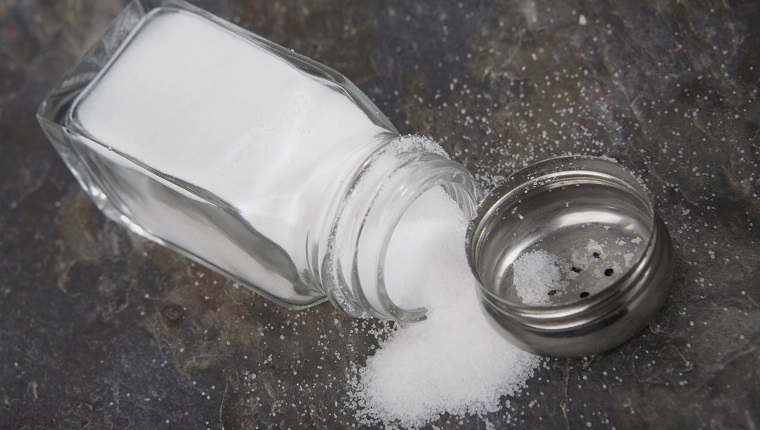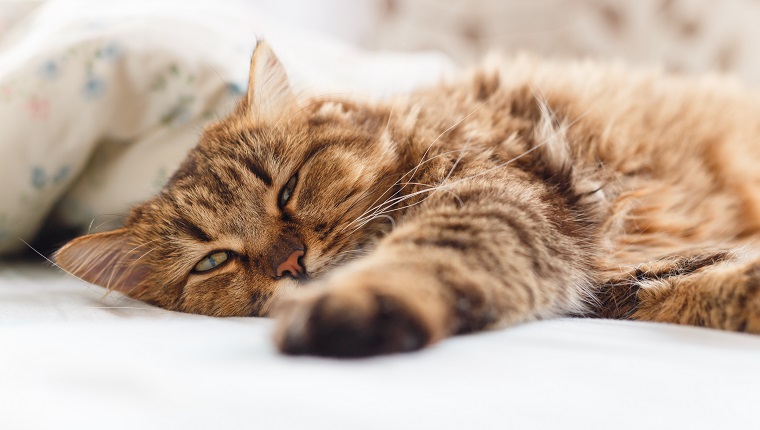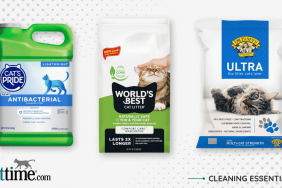Salt poisoning in cats, also sometimes referred to as hypernatremia, is a condition that comes about when a cat ingests too much sodium or is suffering from dehydration. It can bring on a wide range of symptoms depending on how much sodium a cat has consumed.
In extreme cases, it cats can prove to be fatal if not treated quickly enough.
If you see the signs that you cat has consumed too much salt or is suffering from poisoning, then you must get to a veterinarian for a proper diagnosis and advice. Here’s what you should know about the symptoms, causes, and treatments for salt poisoning in cats.
Symptoms Of Salt Poisoning In Cats
Salt poisoning in cats can bring on a wide range of symptoms, depending on both how much sodium is present in the bloodstream and the size of the cat. Some of the most common symptoms include:
- Drinking a lot more water than usual
- Loss of appetite
- Acting lethargic
- Seeming to be disoriented
- Seizures
Causes Of Salt Poisoning In Cats

The cause of salt poisoning in cats is usually either consuming too much sodium or suffering from dehydration.
Some of the other possible causes include:
- Diarrhea
- Vomiting
- Excess fluid loss
- Chronic diseases (including diabetes and kidney disease)
Veterinary Treatments
If you suspect that your cat is suffering from salt poisoning, then your veterinarian will want to carry out a full physical examination along with blood and urine tests.
Your vet will also ask about your cat’s medical history and any recent events or circumstances that might have contributed to bringing on a case of poisoning, such as consuming too much high sodium human food.
In general, fluid therapy is usually the first step in treatment. This is so that your vet can regulate your cat’s electrolyte and sodium levels and return them to normal. Additionally, your veterinarian will need to address any underlying cause or condition that might be at the root of the poisoning.
When your cat recovers at home, it’s best to ensure that there’s always lots of fresh water available for them and to avoid certain cat treats that might contain too much sodium.
Your vet can help to advise you on specific dietary modifications that might need to be taken while your cat recovers.
Has your cat ever suffered from salt poisoning? How did your vet help your cat recover? Let us know in the comments section below.









